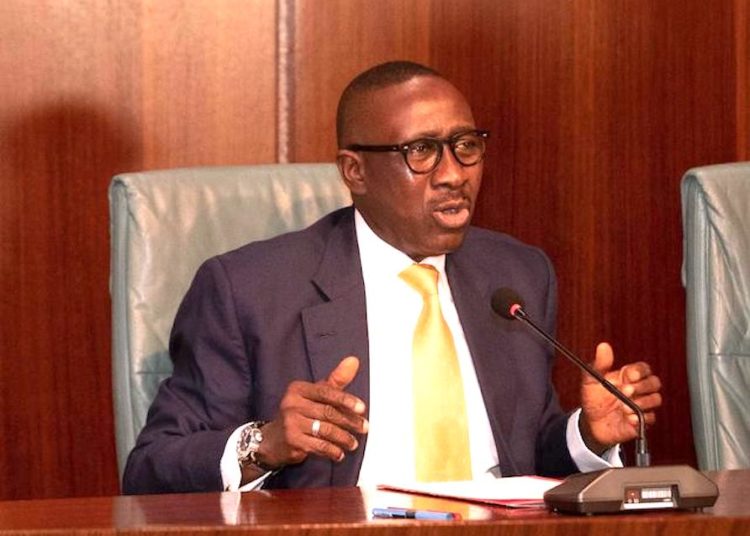The federal government, in collaboration with key stakeholders in the cybersecurity ecosystem, has launched a renewed initiative to combat the escalating menace of cybercrime, which has become increasingly sophisticated and organized. This initiative was the focal point of the Cybersecurity Conference 2022, held in Abuja to mark the 25th anniversary of the Central Securities Clearing System (CSCS).
The conference, themed “Future of Cybersecurity: Emerging Issues and Solutions,” was a platform for addressing the urgent challenges posed by cybercrime in a rapidly digitizing world. In his keynote address, National Security Adviser (NSA) Major General (rtd) Babagana Monguno, represented by Major General Samad Akesode, highlighted the exponential rise in cybercrime, particularly following the COVID-19 pandemic. With the global shift towards digital platforms, there has been a surge in cybercrime activity, with new vulnerabilities emerging across enterprise networks, magnifying cybersecurity risks.
The NSA shared alarming statistics, including an estimated cost of cybercrime at $6 trillion in 2021, with projections for 2022 equally concerning. The Nigerian Communications Commission (NCC) has reported that Nigeria alone loses approximately $500 million annually to cybercrime—roughly 0.08% of its GDP. The scale of the problem is such that cybercrime is now often linked to organized crime, with some instances reportedly involving state-backed actors.
Financial institutions, the capital market, and other critical sectors are particularly vulnerable, given their increasing reliance on digital channels. Monguno stressed the need for an effective, collective response to these challenges, citing efforts outlined in the National Cybersecurity Policy 2021. These include amending the Cybercrime Act of 2015 to strengthen the legal framework against online fraud, and measures to counter Ponzi schemes, unregistered fund managers, and the growing risks of virtual currencies and their association with money laundering and illicit activities.
Also, during the conference, the Chairman of the CSCS Board, Oscar Onyema, echoed the urgency of addressing the global rise of cybercrime. Citing statistics from Cybersecurity Ventures, which forecasts cybercrime to grow by 15% annually, reaching $10.5 trillion by 2025, Onyema warned that this growth is being fueled by criminals’ investment in new technologies designed to exploit digital advancements.
Onyema further emphasized that in today’s hyper-connected world, the consequences of a cyberattack can be catastrophic. With interconnected systems, a single security lapse can potentially bring down entire ecosystems. This underscores the direct threat cybercrime poses to national security and economic sustainability, making collective action crucial in the battle against cybercriminals.
CSCS Managing Director/CEO, Haruna Jalo-Waziri, highlighted the role of cybersecurity in safeguarding Nigeria’s economic and business stability. As a pioneer in document and process digitization in the Nigerian capital market, CSCS has prioritized cybersecurity, positioning itself as a leader in the fight against cyber threats. The conference itself was part of CSCS’s ongoing commitment to driving intellectual discourse, facilitating knowledge-sharing, and fostering collective action in the cybersecurity space.
The conference serves as a stark reminder of the need for continued collaboration among government bodies, financial institutions, and private sector players to protect Nigeria’s digital infrastructure from the growing cybercrime threat. With the stakes higher than ever, cybersecurity must remain at the forefront of national policy and business strategy, ensuring a secure digital future for all Nigerians.




